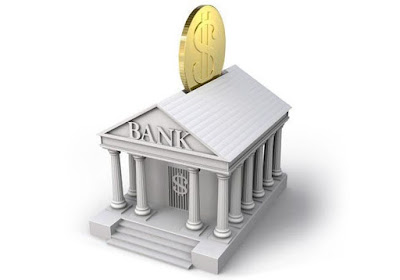Showing posts with label devaluation. Show all posts
Showing posts with label devaluation. Show all posts
Should I keep my money in the bank
Recently, we received a question from a guy who seems to have a lot of money and asks should he keep them in the bank or at home? As usual, we will answer the money question looking at it from different angles and providing the best financial option.
1. Storing money at home is not a good idea
It depends on your income, but in general, if you keep more than 200USD in your house – that’s a bad idea. There are two main reasons for this. You might get robbed, or you might lose your money via an accident (fire, neglect, etc…)
2. You are losing on interest rate
Yes, we know the rate is negligible (nowadays), but even so, every bit is important. Besides, the interest rate might change in the future as currently, it is at minimum for over decades.
3. Money loses value over time
Sad but true. Printing money and “healthy inflation” are the main reasons. The devaluation is actually huge and about 3-5% over each year (could be more during a crisis). One US dollar in 1913 had the same buying power as 26 US dollars in 2020. That’s 2600% devaluation for a little bit more than 100 years period, and it means roughly 260% devaluation per 10 years. The recent 20 years were not so aggressive, so it could be less but probably still about 100% for the recent 10 years.
4. Money is protected in the bank (in many countries)
The banks are the safest place for up to a specific amount of money. In many countries, governments issued protective laws and directives to protect a certain amount of money. In the UK for example, the money is protected by the Financial Services Compensation Scheme (FSCS) for up to 85,000 GBP, per person per firm in 2020.
In the US the Federal Deposit Insurance Corporation (FDIC) insures the money deposited into each bank, up to 250,000 USD for each account.
It is important to remember – if you have more than that limit stored, move the excess to another bank to be fully protected in case of emergency or crisis.
5. Accidentally throwing away cash or leaving it behind
It happens more often than you could imagine. Many people reported they completely forgot about the money stored in the mattress and when throwing it away or leaving the place, the money was gone for good.
In June 2009, an Israeli woman threw out an old mattress. What she was not realizing - it was stuffed with her mother's 1million dollars life savings. The culprit, identified only as Anat, had bought the new bedding as a surprise for her mother. When her mother found out about her gift, she lost consciousness, before revealing the contents of the mattress.
Ontario man forgot about 100,000 CAD inside an old TV. He hid the money decades ago and completely forgot about it. Luckily, the TV was sent for recycling and the employees of the Ontario recycling plant were in shock to find the treasure well hidden, inside the crappy TV.
So, the bottom line is – it’s really a bad idea to keep money at home. It’s much better to keep them safe in the bank or invest using alternatives we will be covering in a future topic.
Subscribe to:
Comments
(
Atom
)
